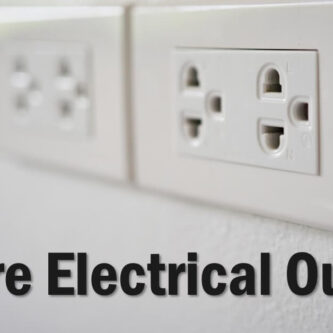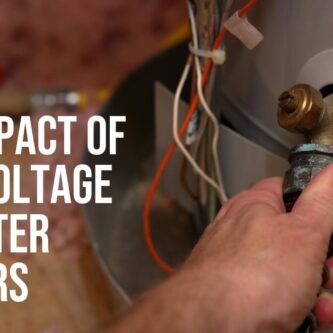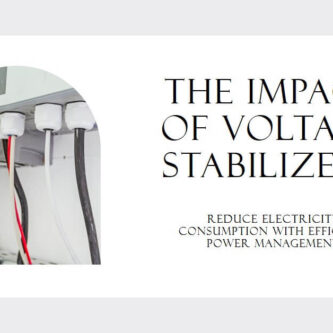If you’ve ever experienced a voltage drop in your home, you know it can be frustrating. Not only can it lead to dimming lights and other electrical issues, but it can also cause damage to your appliances, including your refrigerator. Yes, voltage drop can damage your refrigerator, but it may not necessarily kill it.
In this article, we’ll explore what voltage drop is, how it can affect your refrigerator, and what you can do to prevent damage.
Understanding Voltage Drop
Voltage drop occurs when there is a loss of voltage between the power source and the load.
This can happen for a variety of reasons, including long cable runs, inadequate wire size, and resistance in the wire.
When a voltage drop occurs, the electrical devices in your home may not operate as intended, and you may experience flickering lights, slow motors, or reduced power.
can voltage drop kill my refrigerator?
While voltage drop alone is unlikely to kill your refrigerator, it can certainly cause damage and lead to premature failure of important components, such as the compressor.
Voltage drop can cause your refrigerator to operate inefficiently, leading to increased energy consumption and reduced performance.
Over time, this can cause undue stress on the compressor, leading to failure and potentially requiring costly repairs or replacement.
It’s important to address any voltage drop issues in your home as soon as possible to protect your refrigerator and other appliances.
This can be done by installing a voltage regulator or taking other measures to stabilize the power supply.
Additionally, scheduling regular maintenance for your refrigerator can help catch any potential issues early on and prevent them from becoming more serious.
The Impact of Voltage Drop on Refrigerators
Refrigerators are sensitive to voltage drops because they require a steady and constant supply of electricity to keep their compressors and other components running.
A voltage drop can cause a number of issues with your refrigerator, including:
- Reduced cooling performance: If the compressor in your refrigerator isn’t getting enough voltage, it may not be able to run as efficiently as it should, resulting in higher temperatures inside the fridge and reduced cooling performance.
- Increased energy consumption: A refrigerator that is struggling to maintain the proper temperature due to voltage drop will work harder to keep the contents cold, leading to higher energy consumption and higher utility bills.
- Shorter lifespan: The components in your refrigerator, including the compressor, are designed to operate within a specific voltage range. When a voltage drop occurs, these components can be subjected to additional stress, which can lead to premature failure and a shorter lifespan for your appliance. And the compressor motor may burn out.
Read also my comprehensive article: Voltage Drop: The Silent Culprit Behind Electrical Fires.
The Risks of Voltage Drop on Refrigerators
Short-term risks
If your refrigerator is experiencing a voltage drop, there are a few short-term risks that you should be aware of. These include:
- Food spoilage: If the temperature inside your refrigerator rises too much, it can cause your food to spoil, leading to wasted food and money.
- Compressor overload: When a compressor is forced to work harder due to voltage drop, it can overheat and fail, which can be expensive to repair or replace.
Long-term risks
Over time, the effects of voltage drop on your refrigerator can become more serious. Some of the long-term risks include:
- Compressor failure: A compressor that is subjected to voltage drop over a long period of time can become damaged and eventually fail, resulting in a complete breakdown of your refrigerator.
- Total breakdown of the refrigerator: In some cases, the damage caused by voltage drop can be so severe that the refrigerator cannot be repaired and must be replaced, which can be a costly and time-consuming process.
Preventing Voltage Drop Damage to Refrigerators
There are a few steps you can take to prevent voltage drop from damaging your refrigerator:
- Use a voltage regulator: A voltage regulator is a device that can help stabilize the voltage in your home, preventing voltage drop from occurring.
- Regular maintenance: Regular maintenance of your refrigerator can help ensure that it is operating as efficiently as possible, which can help reduce the risk of damage from voltage drop.
- Optimal placement of the refrigerator: Placing your refrigerator in a location that is not subject to voltage drop can also help prevent damage.
Conclusion
Voltage drop can be a serious issue for your refrigerator, leading to reduced performance, increased energy consumption, and even damage to the compressor and other components.
By understanding what voltage drop is, how it affects your refrigerator, and what you can do to prevent damage, you can help ensure that your appliance operates efficiently and reliably for years to come.
If you ever experience a voltage drop in your home, don’t ignore it. Take action to address the issue, whether that means installing a voltage regulator, scheduling maintenance for your refrigerator, or adjusting its placement.
With the right precautions and proactive measures, you can protect your refrigerator from the harmful effects of voltage drop and enjoy a reliable, efficient appliance for many years to come.
you work With Electricity! Don’t leave empty-handed!
Looking to stay ahead of the game in the world of electrical engineering? Subscribe to my YouTube channel and gain access to exclusive content you won’t find anywhere else!
The staff I recommend (Amazon Affiliate Links to products I believe are high quality):
- Economy 120 Volt/60Hz AC Power Source – Step-Down Voltage & Frequency Converters 1800W
- UNI-T Digital Multimeter Tester UT139C
- 50-Amp Extension Cord for RV “100ft”
- Voltage Stabilizer 110/220v
- Hair Dryer “best selling“
- TOSHIBA EM131A5C-BS Countertop Microwave Ovens
Disclaimer: This contains affiliate links to Amazon products. I may earn a commission for purchases made through these links.




